“Comics are a waste of money.”
These are the words that linger in my brain. They slip into dreams and colour slow days at work with a sickly grey pallor. As a child, I would hear them after managing to get one of my parents to take me to the local comic shop – a feat usually managed twice a year, around my birthday and Christmas time. After months of reading information on the internet, spoiling myself in bits of pieces in order to arrive at the store armed with a game plan, I’d make my purchase amidst sighs of discontent.
“Are you sure this is what you want to spend your money on?” I would hear in the store.
“Comics are a waste of money,” is what I’d hear at home.
At the time, those words cut deep. They struck at the worth of something tied to my sense of being. Today? Today, I think they are all words we need to hear, no matter how much they might hurt our souls.
Welcome to 2019, my friends.
Welcome to the death of the industry as we know it.
By Brandon Schatz — with edits and contributions by Danica LeBlanc
If you’re reading this column, chances are you’ve been keeping your finger on the pulse of (gestures wildly) the comic book industry and the grim forecast of comics retail in 2019. For those that haven’t, here’s the quick and dirty version: many retailers are having a tough go as of late, and many are closing up shop rather than signing up for a few more years of decline. The reasons for this are legion and sometimes highly specific to a store, but all seem to have an immutable idea at the core: something is wrong. The trick seems to come in identifying what that something is, and when it started happening.
If we’re being honest, I think everything went wrong several decades ago, somewhere around the first speculator boom in the 90s. During that span of time, you could see Brian Hibbs talking about how the short term practices being put forward by publishers and encouraged by retailers would do irreparable harm to the industry – and he was right. The industry saw a collapse that took a whole slew of short sighted, slow-to-act stores down with it, emerging shakily years later as graphic novels started permeating societal consciousness.
Today? Well, we’re almost back to the speculative heyday where many publishers are relying on variant covers and gimmicks to boost sales in the short term. Shops, in turn, are aiding and abetting these short-term gains with speculative purchasing of their own, either trying to turn a quick dollar themselves, or attempting to satisfy a roving audience of purchasers whose buying habits are only predictable after reading blog posts about “hot books”.
Things were bad enough the first time the direct market dove right into all of these gross short term marketing ploys when there was enough money floating around for the smart and the lucky to survive. These days? The direct market has a lot more working against it.
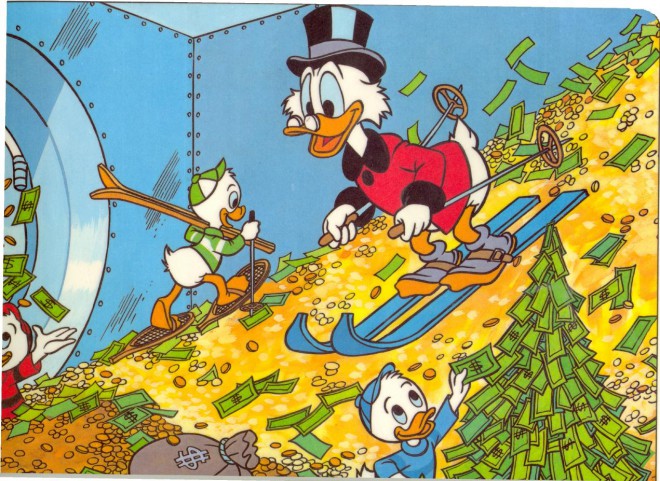
First: there is Diamond. As the direct market attempts to keep the plates spinning, Diamond is having to deal with a lot more product without seeing an increase in profits to match. Back when the money was better, you could mitigate this problem by cutting back – but when you’re already down to the bone, where do you go from there?
At a certain point, Steve Geppi (the owner of Diamond) is going to cut his losses, either because he’s getting old, or because the business just isn’t viable anymore – and even the staunchest of all optimists will have to admit that Geppi is going to continue to age. There is a clock in play, as we really don’t know what will happen when he calls it a day. Will he sell Diamond? And if he does, to who? At this point, I don’t think anyone is seeing value in the distribution model that exists, but someone might be interested in all those tasty exclusive distribution rights for single issues (if those are grandfathered in). Could you imagine the shape of the industry if, say, Amazon purchases Diamond? What then?
Another thing to worry about is the state of Marvel and DC. Both are owned by corporations who could probably care less if the direct market died tomorrow. In an immediate sense, that sudden loss of revenue wouldn’t be unnoticeable, but more than manageable for AT&T/Warners and Disney to swallow. They have many other channels to exploit their IP with, including digital distribution of comic book product. But beyond that, what happens when someone finally looks at this distribution model, and realizes just who utterly wasteful it is? The amount of staff needed to keep such a mechanism running already seems ridiculous to companies this large, and at a guess, the recent job cuts at DC are a portent of things to come.
And beyond that, if retailers can figure out that Diamond is in a precarious position, wouldn’t it follow that Marvel and DC can see that too? So many retailers are afraid of Diamond and reporting losses in their own store, but refuse to meld that idea with that of DC and Marvel focusing on other markets. What if DC started up their Wal-Mart program as a potential stop gap if the direct market crumbled? At a guess, there are more Wal-Marts than there are comic stores – or at the very least, there are more people going to Wal-Marts than there are heading to comic shops. Wouldn’t it be a good idea to get a foot hold in a market with some decent coverage before things come crashing down? And wouldn’t it be a smart idea to push out more into the all-ages market that is truly booming right now, outside of traditional comic shops?
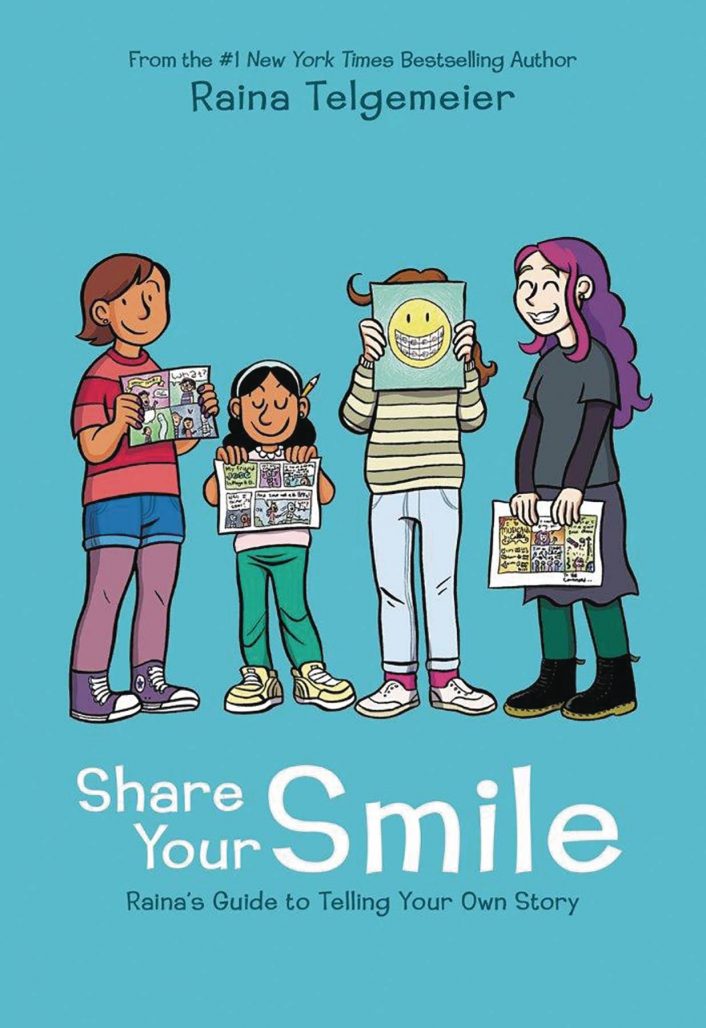
The direct market has never been a very forward thinking organism. Certain aspects of it, yes. Certain shop owners, certainly. But as a whole? No. Right from the start, it was burning through more fuel than it really needed, always looking for a quick dollar over long-term strength, and all of that has brought us here. The industry, as it exists today, is in trouble from all of the quick solutions it has indulged in, and resources are swiftly dwindling. As a result, you’re seeing shops starting to either wither or call it a day in the face of it all. Others will stick around long enough for Diamond or Marvel or DC to say the words “comics are a waste of money”, and that will be it.
Harrowing, right? But keep in mind, this is just the demise of the direct market, and not for the comics industry as a whole – which is a very important distinction to make.
Comics have survived a lot, and comics will survive a lot more. Comics are far more than the structure that distributes print single issues. My progenitors have told me that I’m wrong about that last point, that a death for them means a death for us all, but that can’t be further from the truth. Those are the words of old eyes, continuing to focus too narrowly on the short term.
Yes, this industry is going through a hard time. Yes, shops are disappearing – some due to fatigue and others due to poor business practices. Yes, something needs to change, but that has always been the case. This industry has been constantly evolving from the start – strips, to single issues, to newsstands, to comic shops, to book stores, to digital, and on and on and on. We’re in the midst of the next big evolution, and some folks just won’t be making the journey alongside us. They will be what comics was, and not what comics will be.
They will be the victims of an idea: “comics aren’t worth anything.”

A person hears words like that, and they can’t help but be hurt by them. Rightfully so. Those words are an attack designed to make you contemplate worth using another person’s metrics. Their intent says a lot more about the person speaking them than it does the person hearing them.
“Comics aren’t worth anything.”
A store owner shutting down will say those words themselves, or believe that they were said to them, either directly, or through action. They’ll hear it with every lost customer, with every slight from Diamond, with every boneheaded move from a publisher.
They’ll start to believe it, and they’ll soon spread that word through action of their own.
This is where we are right now. An industry at the brink of evolution. A broken system dying a death that’s been long coming, whispering lies about a future that is remarkably bright – that is filled with a future built by Raina Telgemeier and Tillie Walden and Noelle Stevenson and Dav Pilkey and on and on. One that I see them actively discard because “those books are available everywhere, why would I promote them”.
Comics is bigger than them. It is bigger than the direct market. They are ideas, and those ideas have worth, even if they now don’t have worth to you.
Evolve or die, my friends.
I know what I’m choosing.
[The opinions expressed are those of Schatz and do not necessarily reflect those of The Beat]


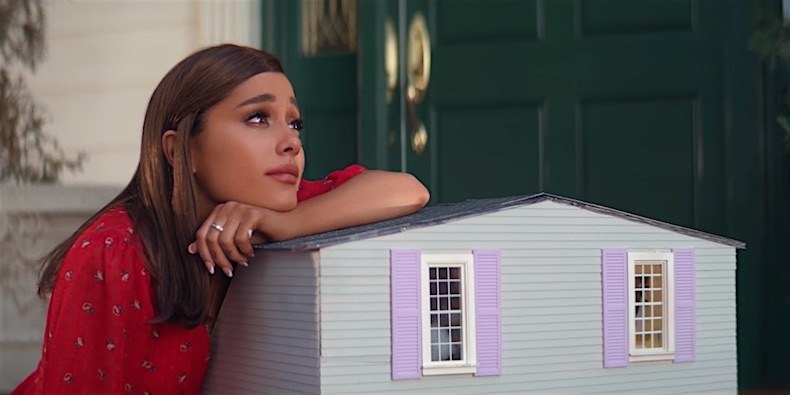

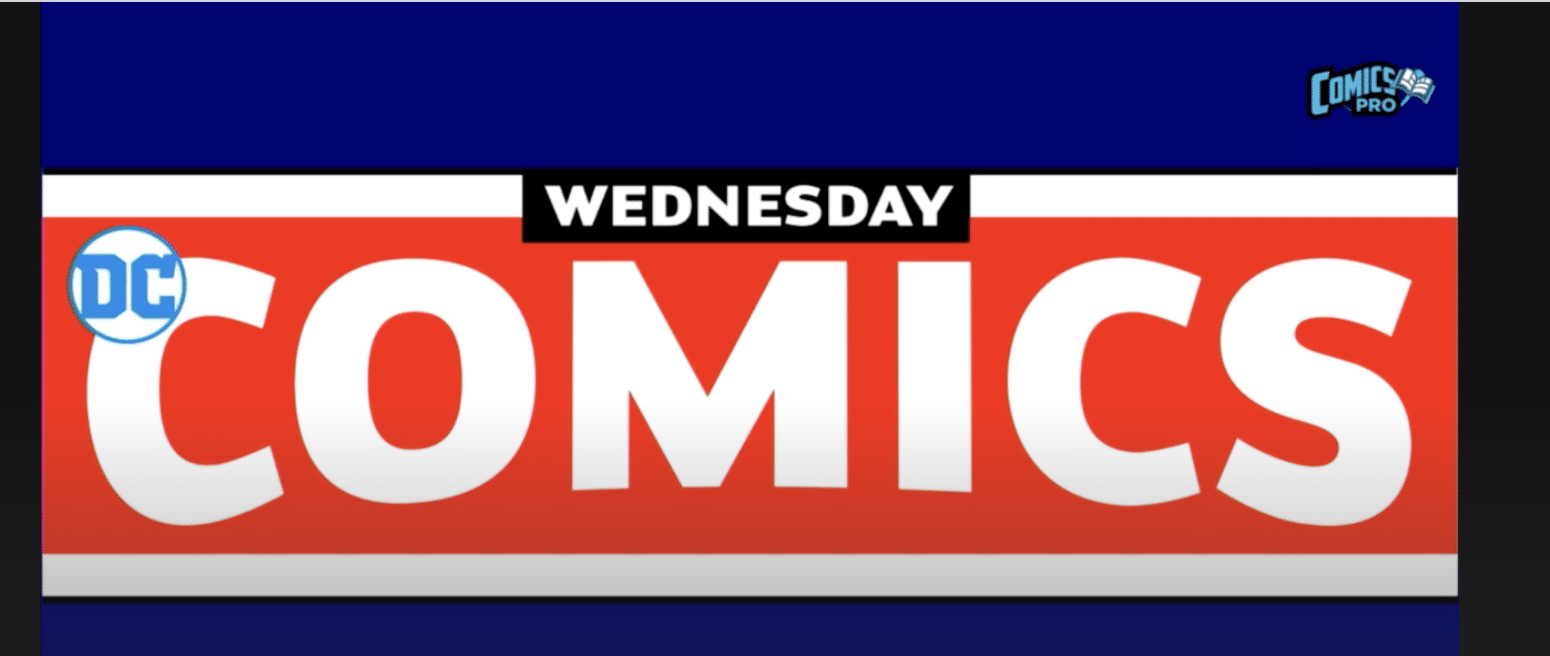
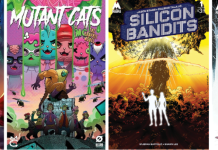



“What if DC started up their Wal-Mart program as a potential stop gap if the direct market crumbled? At a guess, there are more Wal-Marts than there are comic stores – or at the very least, there are more people going to Wal-Marts than there are heading to comic shops. Wouldn’t it be a good idea to get a foot hold in a market with some decent coverage before things come crashing down? And wouldn’t it be a smart idea to push out more into the all-ages market that is truly booming right now, outside of traditional comic shops?”
THANK you. I’m not a Wal-Mart shopper but I’ve always felt DC was wise for attempting to ease into this market, and I’ve been somewhat surprised at how many comic fans have been vocal about disliking it. It’s not about you- it’s about building the audience, building a customer base.
I also feel that comic shops did this to themselves to a large extent, but taking accountability is never easy for most.
My counter view is that, despite nearly three decades of pushing the book format, it would not be possible for me to stay open if the periodical collapsed. I also don’t imagine my #1 book supplier (Image) could survive a transition to GN-only either.
-B
Comic books aren’t really necessary to keep IP of characters valuable. Spider-man, Batman and all the rest would be just fine as valuable properties if comic books were never printed again.
That’s a good point about Diamond. What if something happened and they (or a replacement company to step in) closed for 6 months? The entire comics industry would just die instantly and prob never recover.
So yeah we need new, innovative ideas in the industry if you want to keep the comic book format around.
” I also don’t imagine my #1 book supplier (Image) could survive a transition to GN-only either.”
That can’t possibly be true. I don’t have particulars, but I know that Image makes a majority of their sales over the long term, with collections and graphic novels. They’re already moving that way.
@Brian – Somewhat unintentionally, I’d say I learned a lot of the attitude I have regarding the market from you. I think a graphic novel focus is very feesable and workable outside the direct market. I also don’t see Marvel and DC necessarily getting rid of periodicals, but shifting their formatting and distributing through different channels, but that’s another column entirely.
The point of the piece, is that the direct market is doomed, and folks keep conflating that with the industry and formatting. I actually don’t think you’ll end up closing, and I seem to recall you on a recent Off Panel saying you’d probably be able to weather that particular storm, though it would reasonably be the toughest years of business. And I don’t deny any of that. We’ve been shifting to more of a general book store format since we opened – get the money while it is here, save it for when it is not. Because you’re right, that shift is still going to be monsterous, but something else WILL be in its place. Comics will endure.
Comic books are still affordable if you have the disposable income necessary for your purchases to be a negligible percentage of your income. I think that has changed a bit for many customers, and the LCS DM might find they are relying on a smaller base of more financially secure customers than has been in the past. I have no empirical data to prove that particularly, but the sales data does show less sales. It has made me to rethink of the Big Two’s short term sales tactics aimed at welded-on collectors in a different light.
I want to say that, with this smaller base for perioducal customers, companies are going hard to entice the more financially secure welded-ons in order to keep the periodical afloat. The publishers can then collect in the cheaper format of the tpbs; and this market must surely be growing. So, I want to imagine that Marvel and DC particularly are scrabbling to sell issues by any way they can (even if the methods aren’t that nice). That’s how capitalism works, and I can’t believe they are wilfully driving their business down (just, survival in the short term, at possible expense of longer).
My observations here might be right to some degree, or not. What I do know is that LCSs have a tough time of it when I as a customer don’t really want to physically transact with the small business. Understand, I’m being honest here. Buying comics, particularly if you’re an isolated and/or maturely-aged reader/customer, is not a particularly pleasant experience. I won’t state why that is, and I think it will resonate with you, or not. But I find it an act of will to now have a 3-4 book standing order that I now just want to pick up every couple of months. Very often with comic shops, I just don’t feel I am the customer they want. And I just much prefer conversing about comics with enthusiasts like myself that have attitudes based not on how much skin they have in the game. Or whatever basis for exclusivity retail has. Yes, retailers are under pressure but I think some customers are bypassing them now because of years of putting up with attitudes of many retail staff, when they were the only option.
I think it’s a joke also that shame about comic books and collecting has disappeared as comics have risen in the popular consciousness. It is still considerable, and enough to have made me doubt for a long time if giving a young kid comics is a good thing for them. They might turn out like me! However, I’ve recently observed that the types of reading-kids that are worth raising, have developmental preferences and drives for the material. So I’m less worried now for that kid, if its their choice/need. That’s where new readers to expand a base have to come from. I cannot buy more books myself, to do it.
A lot of sympathy for all involved. I could be near or far from the mark, and that depends on your experience, I think.
“Comic books aren’t really necessary to keep IP of characters valuable.”
As someone once said: “Disney doesn’t need comic books to sell Spider-Man bed sheets.”
I recently read Timely/Marvel’s “Blonde Phantom” comic book, from 1946-49, and found it to be much more entertaining — and much better drawn, thanks to Syd Shores — than anything the company has published in years. In those days, comics sold in numbers that publishers can only dream about today. And there was no direct market catering to people who wanted superheroes and nothing else.
@Danica:
It is my belief that the majority (and perhaps “overwhelming” majority) of Image titles are purely paid on backend, which ACTUALLY MEANS that the writers are usually self-funding and paying the artists (inc. colorists and letterers) out of their own pockets on the hope that they may recoup later.(*)
Serialization is CRITICAL therefore for most people because very few creators have the wherewithal (either in liquid cash money, OR in “fame”) to be able finance the 100+ pages of comics production needed to get to the “book”; serialization amortizes out the costs-of-production, as well as pulling in critical cash flow. Without that process, it’s pretty likely that the prices of books would double.
You know, in the “real world”, Image’s model would likely be called “Vanity publishing”. The book publishing world is generally (for good reason!) against such models — it’s pretty much only because the DM exists and “guarantees” incomes through non-returnable orders that Image can “work” at all as a place for Vital Creativity. https://en.wikipedia.org/wiki/Vanity_press
ALSO, and this is critical: ALL of Image’s distribution (yes, including TO BOOKSTORES) is through DIAMOND. They are the only “major” publisher for which this is true.
-B
(* = I know plenty of Image creators who still never “earned out” [or, at least, “a living”], even with serialization; removing the DM from the equation…. well, I simply do not see how the MATH of it is even vaguely tenable.)
@Brandon
” I actually don’t think you’ll end up closing, and I seem to recall you on a recent Off Panel saying you’d probably be able to weather that particular storm, though it would reasonably be the toughest years of business. ”
Nice you think that, but I kind of don’t….
That was months ago, but I feel like either I said (OR SHOULD HAVE SAID) something like “I could make it, but I’d have to close the 2nd store, fire all of the staff at the main one, and go back to working the counter six days a week solo.”. I mean, sure, it could be done; and I would fight to make it happen because otherwise I’d have to default on my mortgage, and pull my child out of school, and go to feed my family on ramen for every meal, which is not a reality I’d be down for at age 52? But, sure, I guess I “could survive”
But fuck that, thanks.
“I think a graphic novel focus is very feasible and workable outside the direct market.”
Can you name any store in North America that is currently existing with a “graphic novel focus”, inside DM or not, that isn’t doing 1/3 or more of their business from periodicals (or something that is, otherwise NOT “graphic novels”)? Because I think we are one of the few that’s trying to get there (And, like I said, I’ve been pushing that Sisyphian boulder for THIRTY YEARS to get the place where just SIXTY percent of sales is books…. but at LEAST half of that depends on comics being made because they were serialized first. I don’t know of an easy way to work out what “only-OGNs” would be… but I would be surprised if it was more than, say, a quarter of business?)
If you cut 98% of the venues, don’t you cut 85%+ of sales? If not, please explain how?
“I also don’t see Marvel and DC necessarily getting rid of periodicals, but shifting their formatting and distributing through different channels, but that’s another column entirely.”
Yeah, I IN NO WAY see anything even remotely like that happening (WHAT “‘OTHER’ CHANNELS”???); I could see them TRYING a “digital only” focus, but I think that virtually every piece of evidence out there is that is not in ANY way a sustainable model for the overwhelming majority (or types!) of comics.
There’s basic math involved, is what I am saying. If you think WalMart is going to “save” (or even “sustain”!) comics, well, brother, I have a bridge to sell you in Brooklyn…..
“The point of the piece, is that the direct market is doomed”
It only is if we give up on it, or think it’s not worth fighting for. If you’re on that side…. well, then you’re my enemy.
-B
I’ve been a comic book reader for 40 years, and it breaks my heart to say this, but.. the hobby just doesn’t make financial sense for me any more. The entertainment value just isn’t there. If it takes me 10-15 minutes to read a standard $3.99 (hopefully entertaining) DC book, and I can spend $11.00 for a (hopefully entertaining) 2-hour movie, the movie is a better use of money.
That said, I love graphic novels and collected editions, and I do plan on slimming my collection of floppies way down in the coming months. Maybe someone else will find joy from them. My kids (16 and 13) just don’t have the passion for them, and believe me, I’ve tried!
If I were a publisher, when a best-seller sells 25,000 copies, I’d wonder how the medium can continue to be viable. You know that AT&T and Disney will come to a similar point of view eventually.
This is not what I want to see happen, by the way. I’d much rather see the medium survive/blossom, and be product be everywhere – in WalMart, 7-11, Target, Walgreens – everywhere there are shoppers.
Jon
@Brian – I think we’re on similar wave lengths, just looking at things from two pretty different perspectives. And I’ll concede that a lot of that could be down to the dependents involved in our operations – we’re newer, so it is just myself and Danica.
I dunno. I feel like there are solutions, and I honestly think where the industry is right now is too far gone to save. That’s not to say the fight isn’t worth it, or that I particularly WANT it to happen. I just feel like it will. I intake a lot of industry podcasts and interviews, and the view tends to be with an eye towards a market outside of one through Diamond. I think that’s why many smaller companies concentrate their marketing elsewhere. The evolution of Oni, I think, has been particularly smart, and they now catalogue like prose book publishers do. A shift in thought process.
Anyway, all the fight in the world isn’t going to stop someone ELSE from giving up on the direct market – whether that is Diamond, DC or Marvel – I’d say if any of those moves happen, things are going to shift monstrously. And quite frankly, I think you’re seeing those warning signs too. And I don’t think preparing for this possibility loses anyone anything, but puts the industry in a better position to survive.
I know TKO is a contentious company for some people to discuss, but at least I feel like they’re onto something. One of their owners/writers was also on Off Panel, and discussed Diamond and their system and decided to circumvent that. He admitted to early mistakes with approaching retailers, and I find them to have more communication and better service than Diamond, as do a lot of prose distributors. That’s seriously where I’m aiming and where I’m throwing my money for support.
The solution seems pretty obvious to me. If retailers are so afraid of Diamond folding or being absorbed by one of the publishers, why don’t retailers form a joint venture and take control of it, then dictate your own terms. It’s business 101 to control your own production circuits.
“If you think WalMart is going to “save” (or even “sustain”!) comics, well, brother, I have a bridge to sell you in Brooklyn…..”
They’ve gotta try SOMETHING, because the direct market as it currently exists is about to crash and burn. The direct market was a good solution in the ’80s and ’90s (as the cartoon above illustrates). But now? I wouldn’t be surprised if most comic shops go the way of Blockbuster Video and Tower Records.
When discussions like this come up, people chime in to say the industry is set up to do one thing — sell serialized floppies in comic shops, to aging fans and collectors — and that doing anything different is unthinkable and unworkable. I think a lot of fans would rather see the industry die than change.
The “’20s money” cartoon, showing women and girls reading comics, is a fanboy’s nightmare come true. If they can’t accept this coming reality, they should get the hell out of comics, and find another hobby.
I certainly don’t think Wal-Mart will save or sustain comics. What it will do, is something much more subliminal and will take years to show a benefit from; but it’s going to make comic books more visually aware to attention span challenged kids wandering through a Wal-Mart. It’s going to nudge people into remembering that comics exist. It will keep, albeit in a minor sense, the general public, aware of this thing called a comic book. Whether or not you look down at Wal-Mart or not, poorer people generally can’t afford things in a comic book store- they can, and do, flock to Wal-Mart.
I know there’s the Hero Initiative for creators in need, but does any such thing exist for retailers? I almost think the publishers should be proactive and simply helpful and do some initiatives for struggling shops, like sending creators for an in-store signing, a sort of ‘tour’ for a certain title they’re trying to publish, work for more events like that. Just waiting for things to change isn’t enough.
“I feel like there are solutions, and I honestly think where the industry is right now is too far gone to save.”
How long have you been running a store? Less than four years?
It never ceases to amaze me how people bemoan and denigrate the Direct Market when (nowadays) 90% of them only got into comics BECAUSE of the Direct Market. And I’m completely flabbergasted when those same people don’t realize that many if not most of their favorite comics only exist BECAUSE of the Direct Market.
I just checked the Top 500 list over at icv2.com for December 2018. The #100 book in the market sold 18,951. That book was a super-hero title and so were 89 of the 99 books above it. So 4/5th of the best selling books in the DM sell LESS than 19,000 copies in a country of over 300,000,000 and that includes virtually ALL of the non-super-hero stuff out there. How much of that pitifully-selling stuff do you think will survive without the DM? Where exactly are those hundreds of books EVER going to sell outside the DM?
Maybe digital-only comics can be both aesthetically and financially successful for large numbers of creators and fans. I don’t know enough about that medium to make a judgment. But when we talk about the future of the DM, we are really talking about the future of comics as a physical thing.
Mike
“The “’20s money” cartoon, showing women and girls reading comics, is a fanboy’s nightmare come true. If they can’t accept this coming reality, they should get the hell out of comics, and find another hobby.”
Women and girls have ALWAYS read comics. They read them BEFORE the Direct Market. They’ve read them DURING the Direct Market. They’ll read whatever’s left AFTER the Direct Market. You’re not as “woke” as you think you are.
One of the things that has always crippled comic activism is that the activists are motivated more by hatred of other comic fans than they are by love comics.
Mike
@ Brandon: ” I think we’re on similar wave lengths, just looking at things from two pretty different perspectives. ”
Well, I don’t think it is even close to “doomed” (except for the outside actor potential thing), so maybe not? I’m choosing to fight for the thing I love; that I helped build. I think two weeks from now in Charlotte, at ComicsPRO is our best chance to fix the shit that needs to get fixed rather than doing that shrugging emoji thing…. but I also have ~10 years left on my mortgage and no other sensible way to get there at this stage, so classic case of YMMV.
I THINK THE DM CAN BE “FIXED”, just like I think, say, climate change can be. Will it be EASY? Fuck to the no, but it’s still our moral and familial obligation to try.
” I find them to have more communication and better service than Diamond, as do a lot of prose distributors.”
So, in the micro, TKO is also not an even slightly mathematically sustainable model (unless your biz plan is “make a movie, and profit!”, which is some Underwear Gnomes level shit, IMO), and for the macro… well I have been AGGRESSIVELY moving orders away the fuck from Diamond in 2019 (next column, maybe the one after), and I gots to tell you, if you’re hoping for a margin you can keystone on, PRH is mighty fine, but I’m super meh so far on cust service from Macmillan and S&S. SUUUUUPER meh. In this, Diamond (and Kyle Kramer, in specific) has super spoiled me. [I haven’t tried the big push to Hachette quite yet because that’s the one place I might lose margin from Marvel’s TOS)] — but I’m only happy with 1 in 3 of the “prose distributors” so far,
I also think that if you took a survey of 100 poets and asked them “Hey, do you think it would be a good idea to have a ‘direct market’ of 2500 stores that were almost all independently owned and operated and were really really intently focused on poetry as their primary biz goal” that ninety-eight of them would respond “…. who do I have to kill to make that happen?”
THE DIRECT MARKET IS AN AMAZING FUCKING THING. Even with its major and mile-long flaws. Take it for granted at the extreme peril of the medium itself. I am not kidding on this. A certain specific kind of comic is succeeding very well in the “real” world right now (and probably in a sustainable way because of several cultural shifts), and that is truly fantastic, and a GREAT wind to draft against, but that draft, alone, in and of itself is not commercially viable to keep 100% of physical storefronts in business. Maybe .01%. And losing those storefronts and depending SOLELY on “mass” market sources will pretty much guarantee that only certain kind of comic book will be published with any regularity.
Lot more to say, but so much more going on….
-B
We’re in the dying days of the printed comic book industry. Eventually, Disney and AT&T will cease publication of physical comic books and switch to an exclusively digital format.
And I’m fine with that. I have TPBs of all my favorite stories from the 1980s and 90s. I haven’t stepped foot in a brick and mortar comic store in 18 months, and given the way the big two are going with Age of Heroes and Dark Nights: Metal, I doubt I’ll be stepping foot in a comic book store anytime soon.
@Brian The climate change thing – while we both agree that needs to be fixed, the comparison is weird. That’s a quality of life for the human race thing vs comics, a billions to hundreds of thousands scale. But I understand where you’re coming from.
I don’t see this being fixed. I see behaviour, well documented through your columns which I love and respect, that say this won’t be fixed. And the fight is noble, and I’ll be the first to admit that I’d benefit by being wrong about this. I just seriously think a lot of people have discounted it happening on as a “too big to fail” thing, and that’s wild. This industry isn’t big enough, just big to us. And while I believe we matter, I believe an evolution is upon us, and that, is something I refuse to fight against.
@Brian The economics of the Canadian market vs the US market are quite different too, in terms of margins, and distributions – been working a bit tighter than I’d think most US stores work with, getting charged 30 cents on the dollar while pay is roughly the same for folks here. The direct market does us pretty few favours, tbh.
I have been reading comic books for a very long time. I always, always, always prefer the monthly periodicals. The continued next issue is just so much fun to me. Specifically to @Kaleb I am 56 and love going to the comic book store and they are always happy to see me. I think I may be spoiled there because I have been going to the same one for almost forty years. I would never stop going to my local comic shop just because of my age. It’s good to interact with different people and different age groups about what they are reading. If I didn’t I might have missed out on things like Murder Falcon. You’re as young as you feel I guess. Most days I’m 5. :)
And everyone’s experience and story is like that, Douglas, and that’s why comic-book retailing is a licence to print money, am I right? ; )
Only speaking to my experience, and glad you’re able to have a good one. I look at characters like Harvey Pekar, Robert Crumb or Seymour from Ghost World though, as a type of nerdish, tired old man, that didn’t get along with others (they felt old, and were regarded, and made to feel, as perverted), that is relevant, and describes a pain that is relatable. And The 40 Year Old Virgin and The Big Bang Theory never made fun of the social awkwardness, and pettiness, of nerdish males. And Stan Lee always had as his heart’s desire to be a comic book writer, and not the author of the next great American novel (until he was renowned for his comics, that is). No, no problems at all with masculinities, aging and comics… (For all of postmodernism, in literary circles, you’ll still be fighting – try to talk to someone that has been educated and is grounded in the great texts about comics!).
Personally, liking comics for me is not really much of a social advantage. Happy to hear others have a more comfortable time with it, but I’ve personally known a few Seymours from Ghost World that exist on the margins (even though Seymour was into Jazz rather than comics). Would these people have a hard go of it from uppity retail staff who perhaps felt like they were more on the inside of an industry that was cool, or more socially mobile on their path to their next job? Yes. (Me, I kind of like the Seymours more than the cliquey clerks; just my experience. Catharsis much?
“One of the things that has always crippled comic activism is that the activists are motivated more by hatred of other comic fans than they are by love comics”
Mike has said a lot of things I disagree with, but this? This is one of the truest things ever said. All the way back to the good old WEF, that’s how it’s been.
And look where we are now.
I’ve been reading comics for over thirty-five years. At this point in time, I think there are three definitive statements that can be made about the medium.
Comics work much better in print than they do in digital format. Despite David Kunzle’s assertion that comics is a disposable medium, print will always be a better way to consume visual art. And with the death of things like Tumblr, people are starting to realize that digital is far more disposable than paper. Paper isn’t subject to DRM or a hard-drive failure or a subscription glitch. Witness the return of vinyl records. That’s a skid that can be turned into.
The superhero genre has achieved mass market saturation, so it’s probably fair to say that everyone who wants to read superhero comics is currently reading superhero comics. Expecting that demographic to increase is wishful thinking.
Comics is far from being a dead medium. Mainstream American corporate periodical superhero comics are having a tough time, but Raina Telgemeier is a New York Times best-seller several times over with OGNs. It’s entirely possible that she’s a best-seller specifically because her publisher doesn’t rely on the Direct Market. Which is no wonder, considering that her material isn’t aimed at the Direct Market demographic.
The weirdest thing about the retailer side of the comics industry is that most comic shops don’t seem to have advertising or marketing budgets. From what I can tell, a lot of comic shops seem to rely on the fact that people want to read comics and don’t seem to go out of their way to attract new readers. Even Hibbs refers to non-comics readers as “civilians,” which is baffling, even desultory, terminology. Most other retail businesses use the industry-standard term “potential customers.”
The one solution I have yet to see discussed is a marketing push to advertise the fact that other genres exist to people who aren’t interested in superhero comics and think that’s all that’s available. The most successful comic shops I’m familiar with de-emphasize the superhero genre entirely. If the demographic that you’re relying on can’t support your business, figure out how to bring in another demographic.
@RM We advertise when we can afford it, but mainly our advertising “budget” is zero dollars, spent through time on our social media accounts. There is the occasional print ad, and we have bus benches now(which still feels very cool).
It boggles me that a lot of comic stores don’t run like most businesses. Obviously, there are specifics that won’t work anywhere else, but the “Business 101” things should count for everyone. Get your name out there, market in which way you can, don’t only market to one type of customer. Your business should be always changing, always growing, working on becoming better. The moment you rest on your laurels could be the moment you get swept under the moving wheel that is the industry.
I enjoy reading printed single issue comics. If publishers and my LCS can continue to keep that hobby affordable for me, I’m here for the long haul. I’ll even buy my printed comics from a book store, an online store, or the publisher if need be. But for the market’s sake, I hope everyone from the publishers down to the retailers find a way to make comics more visible. Cut in commercials before Marvel movies, Facebook ads, print flyers at coffee shops, tables at libraries with free comics. And we readers should make our hobby visible. Give a graphic novel as a gift (there’s literally a book for everyone), post about them on social media, donate comics to libraries and schools.
MBunge said: “You’re not as “woke” as you think you are.”
Mike is fine with women in comics, long as they keep their mouths shut and don’t wear T-shirts with “offensive” feminist slogans.
“One of the things that has always crippled comic activism is that the activists are motivated more by hatred of other comic fans than they are by love comics”
Some behavior by so-called fans deserves our hatred:
https://www.inverse.com/article/41132-comicsgate-explained-bigots-milkshake-marvel-dc-gamergate
I agree with your assessment. In fact, a friend of mine and I have discussed this many times over the last 20 years. We both started selling back issue comics on Yahoo and EBay auction sites. Our conclusion ? Comics are not worth the high sticker price. Many are not worth the paper they are printed on. This was back in 99 , after the first wave of publishing gimmicks came along. Needless to say, at the current pricing, the average buyer better be well employed. The good news is: there is a large amount of comics from recent years going dirt cheap. If you know where to look. Its time for publishers to address the future.
I don’t mind buying a certain number of floppies every month (looking at you, Outpost Zero, Criminal and Lazarus), and I believe there is still value in buying those which you like from an LCS. But I’m never going back to buying 20+ titles per month. Depends on your pay packet, the amount you buy.
On the plus side, I think Marvel have quietly increased the quality of their comics. In Heidi’s sales figures from a month or so ago, Marvel had a 40% share, and Batman was sixth/seventh in the top ten periodicals. That’s the distribution pattern I always remember historically, so I actually take that as a good sign for periodicals (could be wrong, but that’s what I saw in it).
Superhero stories are more popular than ever before. A freaking Aquaman movie just made $1B at the box office. Superhero comic sales are going down the drain following a wave of awful editorial decisions. And we are meant to conclude that this is because kids would rather read Raina Telgemeier instead of superhero comics?
You losers deserve to go out of business.
Comments are closed.